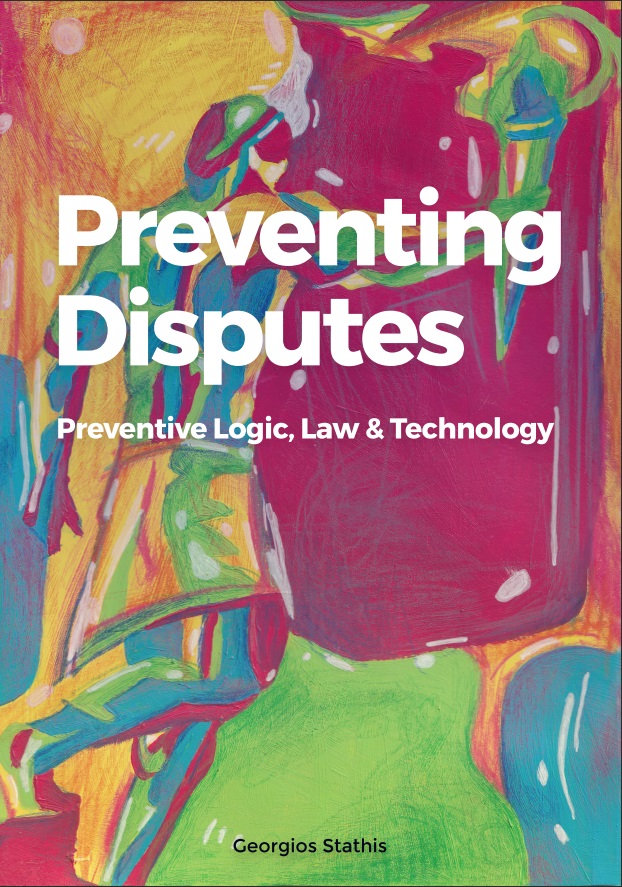
Georgios Stathis’s thesis explores the automation of legal risk management, addressing the question: ‘To what extent is it possible to automate the prevention of disputes?’ By combining the principles of Preventive Law with Artificial Intelligence (AI) and Data Science (DS), the research aims to transform how legal risks are identified and managed to reduce the likelihood of disputes occurring. Grounded in argumentation theory, it establishes a framework for proactive legal strategies, improving efficiency and transparency in legal processes. A major contribution is the development of the Onassis Ontology, an ontology designed to automate contract management by leveraging communications and risk data, which are often implicit. It provides a systematic method to identify, evaluate, and address contractual risks in an automated manner. By streamlining processes that are typically manual and complex, it makes legal risk analysis in the context of contracting accessible to both legal experts and non-experts. The thesis also adapts the Bow-Tie Method, a well-known risk visualization technique, for automated contractual risk management. The adaptation offers a clear and visual way to map potential legal challenges, making risks and obligations easier to analyze and explain.
The visual transparency fosters user trust, particularly when technical legal language might obscure critical information related to legal risk and consequences.
The research emphasizes the broader shift from reactive to proactive legal strategies. Traditional legal systems often address disputes only after they occur, leading to inefficiencies and high costs. The thesis advocates for preventive approaches, supported by AI, DS, and argumentation theory, to anticipate and mitigate risks early. A key innovation is the use of Proactive Control Data (PCD) to generate actionable insights for legal teams to prevent disputes before they escalate. The findings show that automating dispute prevention is both achievable and impactful. Initial applications show particular promise in simpler legal contexts, such as freelance contracts, where risks are more straightforward to assess and communications data easier to collect. However, the scalability of these solutions is significant. As technological infrastructures evolve, these methods can be expanded to handle complex legal scenarios.
It shows how it is possible to simplify and automate legal processes to foster access to legal expertise, reduce the financial and emotional toll of disputes, and enhance trust in legal systems. Furthermore, the integration of ethical considerations and transparency ensures that these innovations align with emerging regulations, such as those concerning AI governance. The thesis lays the groundwork for future impactful innovation in LegalTech. It envisions a proactive legal environment where disputes are minimized, workflows are streamlined, and trust in automated systems is reinforced. These advancements offer a vision of law that is not only more efficient but also more equitable and accessible.
Statis defended his thesis on November 27th 2024 at the Faculty of Law, Leiden University, Institute of Tax Law and Economics.
Promotores: prof. dr. Jan Adriaanse and prof. dr. Jaap van den Herik.
Georgios Stathis
Preventing Disputes: Preventive Logic, Law & Technology
Proefschrift via open access.
ISBN: 978 94 649 6262 8

